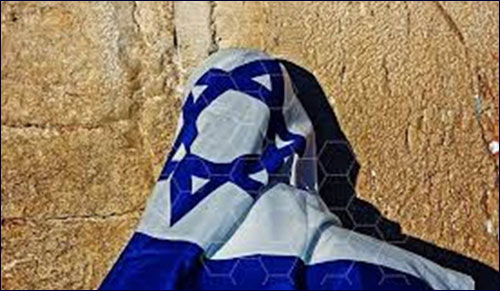 Iran’s Attack on Israel
Iran’s Attack on Israel


3 min read
4 min read
11 min read
4 min read
Personal reflections on this significant day.
On the 28th of Iyar, 1967, my father woke me up with the news that the Israeli army liberated the Old City of Jerusalem and the Kotel, the Western Wall. When I arrived in yeshiva, the atmosphere was joyous. We had been saying psalms every day for the last several days. Most of us were children, ages 12 and under, but we all felt the danger that Klal Yisrael was in. All of that changed after we heard how the Israeli army broke through the gates of the Old City and that Jerusalem was once again in Jewish hands.
Later that evening, I listened to WEVD. The announcer said in Yiddish, “The Old City of Jerusalem was liberated today … We repeat: the Old City of Jerusalem…” The next day the daily papers showed photographs of Rabbi Goren z”l blowing the shofar with soldiers standing nearby, with the Kotel looming in the background. This was the first photograph of the Temple Mount under Jewish sovereignty in over 2000 years. I remember the euphoria in the streets. Israeli flags decorated many stores on 13th Avenue in Boro Park.
Within weeks books, colorful posters of Jerusalem and records with songs of the Six Day War were sold in local Jewish book stores. Yerushalayim Shel Zahav was an instant hit and people flocked to buy the record album.
As I grew older, I became aware that the period preceding Shavuot was one of sadness for my parents. They did their best not to show it, but I sensed it nevertheless. I remember my father lighting yartzheit candles for his parents who were murdered in Auschwitz. A week later my mother tearfully lit yartzheit candles for her parents and siblings. They too were murdered in Auschwitz.
Seventy years ago, on the 28th of Iyar, in 1944, cattle cars carrying hundreds of Jews from the Marmarrush region of Hungary entered the gates of hell known as Auschwitz-Birkenau. Among them were my grandfather, Rabbi Ezra ben Avraham, h”yd and my grandmother, Sarah bas R’ Chaim h”yd. They and their fellow Jews from the town of Petrova died sanctifying God’s Name as the Zyklon B gas filled the gas chamber.
In 1967, on the 28th day of Iyar, tanks and halftracks carrying hundreds of Jewish soldiers entered the gates of Jerusalem. They sanctified God’s Name as they recited the shehechiyanu blessing.
Seventy years ago, in 1944, on 28th day of Iyar, the world was silent. Doors of escape were locked, It was a chillul Hashem, a desecration of God’s Name.
On the 28th day of Iyar, 1967, the world witnessed great miracles. God gave us back the keys to his dwelling place. It was a kiddush Hashem, a sanctification of God’s Name.
Yom Yerushalayim, Jerusalem Day, has special significance for my family and me. It is with great emotion that I hang the Israeli flag outside my home. I was born a mere ten years after the Holocaust. It is with great thanks to the Almighty that I was not born ten years earlier. When my grandparents went to their death on the 28th of Iyar, 70 years ago, who in Auschwitz could have imagined that in a mere four years, Jews would have a place of refuge in the State of Israel?
On the 28th of Iyar, 1944, who could have dreamed that a mere 23 years later, the Master of the Universe would send His messengers to liberate the Temple Mount?
The Jews that survived the Holocaust held fast to their faith despite the horrors they went through. Israel is what gave many people the strength to rebuild. The miracles that God showed on the Yom Yerushalayim gave them a certain measure of comfort.
May God continue to watch over the Holy Land. May He continue to watch over our holy soldiers, those who serve with a gun, those who serve with a tractate of Talmud, and those who serve with both.
The State of Israel just celebrated its 66th birthday. Sixty-six is the numerical value of the Hebrew letters Beit-Samach-Daled, which is an acronym for “Bisyata Dishmaya” – with the help of God. May God grant us the siyata dishmaya, the Heavenly assistance to stand together as we stood at the time of the giving of the Torah, “Ish echad b”lev echad,” as one man with one heart, and thereby hasten the coming of Mashiach.
